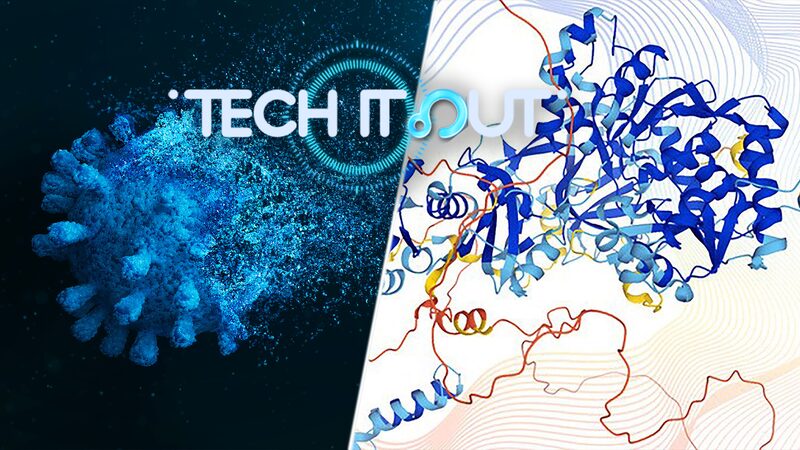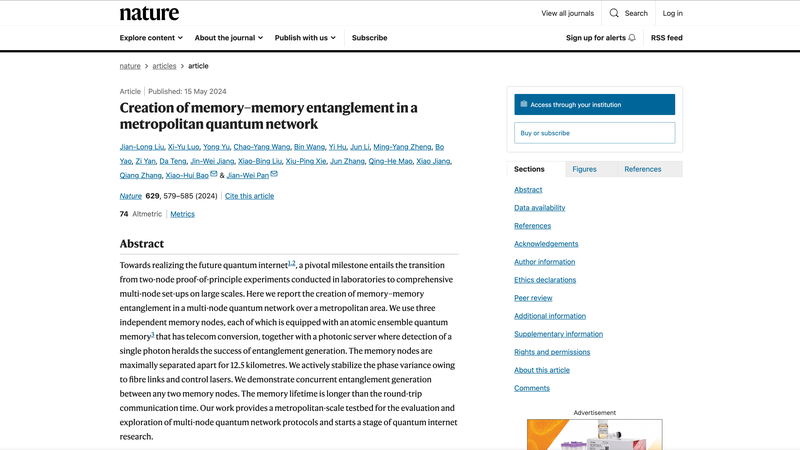As we wrap up another year of remarkable advancements, we take a closer look at the major scientific and technological breakthroughs of 2024 that are shaping our world. From medical innovations to quantum leaps in computing, these developments not only push the boundaries of human knowledge but also open new horizons for future research and applications.
Injectable HIV Drug Offers New Hope
An injectable HIV drug called lenacapavir has shown remarkable potential in preventing infection. Targeting the structure and function of HIV’s capsid protein, each shot provides protection for up to six months. Recognized as the “Breakthrough of the Year” by Science, the journal described it as “a pivotal step toward diminishing HIV/AIDS as a global health crisis.” This long-acting treatment could revolutionize HIV prevention and significantly reduce the spread of the virus worldwide.
Quantum Computing Takes a Leap Forward with ‘Willow’ Chip
Alphabet, Google’s parent company, has unveiled a new quantum chip called ‘Willow,’ capable of performing “below threshold” quantum calculations. Traditionally, adding more qubits to quantum systems increases error rates. Unlike previous systems, ‘Willow’ not only increases qubit count but also enhances their reliability. This breakthrough paves the way for practical quantum computing applications, potentially transforming industries ranging from cryptography to complex system modeling.
AlphaFold 3 Revolutionizes Protein Research
Google’s DeepMind introduced AlphaFold 3, an AI model that won the Nobel Prize in Chemistry for its groundbreaking work in protein folding. AlphaFold 3 predicts the structure and interactions of all life’s molecules with unprecedented accuracy, significantly reducing the time required to map protein structures. This “game-changer” advances scientific understanding of protein functions and opens new pathways for research and drug development. DeepMind has also made its source code and database freely available to scientists, fostering global collaboration.
Oldest Multicellular Fossils Discovered in North China
Researchers have uncovered the oldest known complex life forms in North China. These 1.63-billion-year-old fossils mark the earliest record of multicellular eukaryotes, pushing back the timeline of emerging complex life forms by about 70 million years. Along with recent discoveries of simple multicellular eukaryotes of similar age in India, Canada, and Australia, these fossils suggest that eukaryotes took an early step toward multicellularity, offering new insights into the evolution of life on Earth.
Breakthrough in Autoimmune Disease Treatment
Patients with serious autoimmune diseases have new hope with advancements in CAR-T-cell therapy. Originally used for treating cancer, T-cell therapy is now being adapted to treat autoimmune diseases like lupus, scleroderma, and multiple sclerosis. Doctors are using genetically engineered T-cells from healthy donors, showing promising results in patients who have not responded to conventional treatments. This breakthrough may offer a new approach to managing autoimmune conditions, potentially reducing disease progression and side effects of traditional therapies.
China’s ‘Artificial Sun’ Achieves Milestone in Controlled Nuclear Fusion
Chinese scientists have achieved a milestone in controlled nuclear fusion with their Huanliu-3 tokamak, known as the ‘artificial sun.’ Researchers developed an advanced magnetic field structure with superior performance compared to previous designs, significantly enhancing the control capabilities of nuclear fusion devices. Controlled nuclear fusion, a clean, safe, and abundant energy source, is considered vital for solving global energy and environmental challenges and promoting sustainable development.
These groundbreaking achievements of 2024 reflect the relentless pursuit of knowledge and innovation across the globe. As we look forward to the future, these developments not only inspire but also lay the foundation for further advancements that will shape our world for generations to come.
Reference(s):
cgtn.com








